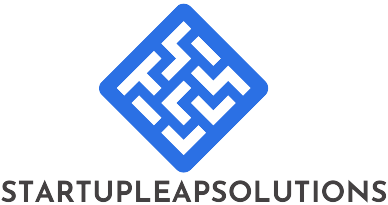Table of Contents
ToggleIn a world where cash is becoming as rare as a unicorn sighting, fintech courses are the magic wands that can help anyone navigate the wild realm of digital finance. Whether it’s mastering blockchain or understanding the latest in mobile payments, these courses offer the keys to unlock a treasure trove of knowledge. Who wouldn’t want to impress friends with their newfound ability to explain cryptocurrencies without sounding like they’re speaking an alien language?
As financial technology continues to evolve faster than a toddler on a sugar rush, staying ahead of the curve is essential. Fintech courses not only equip learners with the skills to thrive in this exciting industry but also provide a fun and engaging way to dive into the future of money. So, why not jump on the fintech bandwagon and transform from a financial novice to a savvy digital money wizard?
Overview of Fintech Courses
Fintech courses play a significant role in equipping individuals with necessary skills in the digital finance landscape. These courses cover vital concepts, preparing participants for a rapidly changing industry.
Importance of Fintech Education
Fintech education enhances understanding of essential technologies, including blockchain and crypto. Participants gain the confidence needed to navigate complex financial systems. Knowledge gained from fintech courses enables individuals to adapt to evolving market demands. Staying informed about digital trends is crucial for professional development in finance. Employers increasingly prefer candidates with a solid grasp of fintech concepts, recognizing the value they bring to organizations.
Types of Fintech Courses Available
Various fintech courses cater to different learning needs and objectives. Online programs offer flexibility, allowing students to study at their own pace. Certificates in blockchain technology focus on decentralized finance and smart contracts. Programs in payment systems explore mobile payment technologies and digital currencies. Bootcamps often provide intensive training in specific areas, like data analytics or cybersecurity. Universities also offer degree programs that cover broader finance and technology topics, creating a comprehensive understanding of the fintech sector.
Popular Fintech Course Providers

Numerous providers offer fintech courses that cater to various learning styles and goals. Each option provides unique advantages, ensuring learners find the right fit for their needs.
Online Learning Platforms
Online learning platforms have gained popularity for their flexibility. Providers like Coursera and Udacity offer courses from top universities and industry experts. Students access modules on topics such as blockchain and mobile payments, allowing them to learn at their own pace. Platforms typically feature quizzes and hands-on projects to enhance understanding. Many learners appreciate the convenience of studying from home on their schedules. Additionally, some platforms provide certifications that bolster resumes and offer proof of skill acquisition.
University Programs
University programs present another option for those seeking a deeper understanding of fintech. Many institutions offer specialized degree programs or certificates in financial technology. Programs often cover essential topics, including risk management, data analytics, and regulatory compliance. Faculty with industry experience teach courses, providing valuable insights into the sector. Enrollment in these programs may connect students with industry networks and job placement opportunities. Engaging with peers in a classroom setting promotes collaboration and deeper learning experiences.
Key Topics Covered in Fintech Courses
Fintech courses encompass a range of subjects crucial for understanding the digital finance landscape. The following key topics are typically included:
Blockchain and Cryptocurrencies
Blockchain technology undergirds cryptocurrencies, making it a fundamental topic in fintech courses. Learners explore the mechanics of decentralized systems and how they enhance security and transparency. Concepts like smart contracts and consensus algorithms receive significant attention, enabling participants to grasp their applications in real-world scenarios. Cryptocurrencies, including Bitcoin and Ethereum, highlight investment opportunities and associated risks. Understanding these elements empowers individuals to discuss cryptocurrencies confidently and make informed decisions in their financial endeavors.
Digital Payments and Banking
Digital payments represent a significant shift in how transactions occur. Students examine the various platforms and technologies driving this transformation, such as mobile wallets and peer-to-peer payment systems. Key concepts include transaction security, user authentication, and regulation compliance. Banking innovations, such as neobanks and traditional banks adapting to digital trends, also feature prominently. Comprehensive knowledge of this subject equips individuals to navigate the evolving landscape of financial institutions, enhancing their ability to analyze market strategies and consumer behaviors effectively.
Benefits of Taking Fintech Courses
Fintech courses offer numerous advantages for those looking to enhance their understanding of the digital finance landscape. They serve as a pathway for individuals seeking to elevate their careers and acquire critical skills.
Career Advancement Opportunities
Taking fintech courses significantly boosts career advancement opportunities. Many employers prioritize candidates equipped with fintech knowledge, particularly in emerging areas such as blockchain and data analytics. Professionals may find increased job openings in roles like financial analyst, risk manager, or fintech product manager. Networking with industry experts during courses often leads to valuable connections and mentorship opportunities. Real-world projects incorporated in many programs provide practical experience that enhances resumés. Overall, individuals who commit to fintech education may find themselves more competitive in a fast-evolving job market.
Skill Development in Emerging Technologies
Developing skills in emerging technologies is a key benefit of fintech courses. Understanding blockchain, artificial intelligence, and mobile payment systems positions individuals at the forefront of financial innovation. Participants typically gain hands-on experience with contemporary tools and techniques used in the industry. Courses frequently cover essential topics, including encryption methods and regulatory compliance, ensuring a well-rounded education. The ability to adapt to new technologies enhances problem-solving skills and encourages innovation. As a result, learners cultivate a robust skill set that aligns with industry demands, preparing them for future challenges.
The rise of fintech courses marks a pivotal shift in the financial landscape. As digital finance continues to evolve rapidly, these courses offer individuals the opportunity to stay ahead of the curve. By mastering essential concepts and technologies, learners can enhance their career prospects and become valuable assets in the workforce.
Investing time in fintech education not only equips participants with vital skills but also fosters connections with industry professionals. This blend of knowledge and networking is crucial for navigating the complexities of modern finance. Embracing fintech courses is a proactive step toward thriving in an increasingly digital world.








